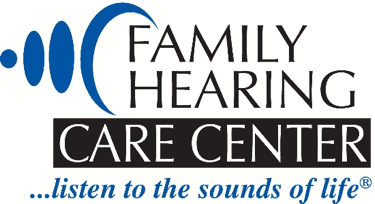
Supporting Pediatric Hearing Care
Pediatric hearing care is a vital aspect of a child’s health and development. Identifying and addressing hearing loss early can positively impact communication, learning, and social skills. Understanding how to support pediatric hearing care helps parents and caregivers take important steps for their child’s well-being.
Recognizing Signs of Hearing Loss in Children
Children may not always express that they are experiencing hearing difficulties. Therefore, it is essential to recognize the signs of hearing loss early on. Be attentive if your child frequently asks for repetition, shows delayed speech development, or doesn’t respond to sounds. Complaints of ear pain or discomfort can also indicate a problem. Parents and caregivers should also observe their child’s behavior during conversations. If your child appears inattentive, struggles to follow instructions, or turns up the volume on electronic devices, these could be signs of hearing issues.
The Importance of Early Hearing Health Exams
Early identification of hearing issues allows for timely intervention, which can significantly improve a child’s communication and learning outcomes. A hearing health exam typically involves a series of tests to assess a child’s hearing ability. Hearing health professionals use child-friendly methods to ensure accurate results. Regular exams should be part of a child’s routine health check-ups, especially if there is a family history of hearing loss.
Treatment and Interventions
Once hearing loss is detected, various treatment options and interventions can help manage the condition. Hearing aids are common devices that amplify sound and can be customized for each child’s needs. Cochlear implants may be considered for severe hearing loss. Working with a speech therapist can help a child develop communication skills and improve their speech and language development. Early intervention services may also be available to provide additional support.
Supporting Your Child at Home
Parents and caregivers play a critical role in supporting children with hearing loss. Creating a conducive environment at home can help optimize communication and learning. Ensure that your child has a quiet place to complete homework or engage in conversations. Reduce background noise and face your child while speaking to aid lip-reading. Speak clearly and at a natural pace. Use visual aids and gestures to reinforce your message and encourage your child to ask questions if they don’t understand something. Consistent support at home can make a significant difference in your child’s confidence and communication abilities.
Working with Educators
Collaboration with educators is key to supporting a child with hearing loss in an academic setting. Inform teachers and school staff about your child’s hearing needs and any accommodations they may require. Regular communication with the school ensures that your child receives the necessary support. Teachers can implement various strategies to help your child succeed in the classroom. Preferential seating, the use of FM systems, and written instructions can aid in effective learning. School-based support services, such as an Individualized Education Program (IEP), may also be beneficial.
Encouraging Social Interaction
Children with hearing loss should be encouraged to participate in social activities and interact with their peers. Helping them build friendships and social skills can improve their confidence. It’s also important to educate peers and siblings about hearing loss. Promoting understanding and acceptance within their social circle can create a supportive environment. Activities and games that involve listening and speaking can be enjoyable and beneficial for all children.
Continuous Support and Monitoring
Pediatric hearing care is an ongoing process. Regular follow-ups with hearing health professionals and other healthcare providers ensure that your child’s hearing needs are continually assessed and addressed. Hearing aids and other devices may require adjustments as your child grows. Staying informed about the latest advancements in hearing care can also benefit your child. New technologies and interventions can provide improved outcomes and enhance your child’s quality of life.
